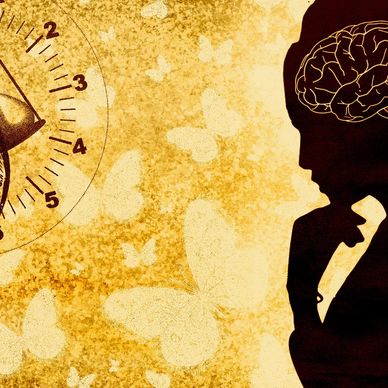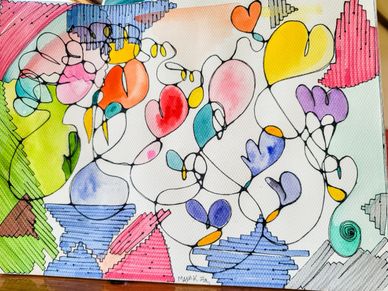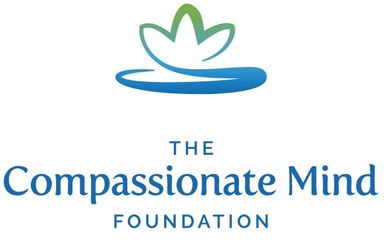Suggested Videos
Psychoeducation Videos

In conjunction with psychotherapy, I often recommend various books, articles, and videos for patients to explore. Here you are going to find some insightful videos. None of these resources should be considered an alternative to psychotherapy; instead, they are ways of optimizing the work done in therapy. In addition to the materials shared here, I often share resources, articles, and ideas on my Facebook and Instagram pages. Feel free to visit or “like” to receive updates on your social media.
Center for Mindfulness and Compassion- Grand Rounds Recordings

The Center for Mindfulness and Compassion's mission is to enhance health and well-being by integrating mindfulness and compassion into healthcare and communities with a commitment to inclusivity, accessibility, and diversity. They provide a series of recorded presentations on mindfulness, compassion, and developmental trauma.
What is Compassion-Focused Therapy (CFT) ?
What is Compassion-Focused Therapy (CFT) ?
Compassion-based interventions have been found to be very effective in enhancing compassion, self-compassion, and mindfulness, reducing depression, anxiety, and psychological distress, and increasing wellbeing. One such approach is compassion-focused therapy (CFT). In this video, Dr. Stan Steindl will briefly describe CFT, its origins, and theories, as well as some of the practical components that CFT can involve.
What if a Zebra Had a Human Brain?
Compassion Focused Therapy: Three Emotion Regulation Systems
What is Compassion-Focused Therapy (CFT) ?
A zebra with a human brain would not last long on the African savannah. Find out why by watching this cute animation based on Compassion-Focused Therapy.
Tricky Brain: Old and New Brain
Compassion Focused Therapy: Three Emotion Regulation Systems
Compassion Focused Therapy: Three Emotion Regulation Systems
In this video, the author explores scientific and evolutionary evidence as to why our brains work the way they do and why they can be somewhat tricky. The presenter also describes how we can get stuck in loops of feeling and thinking that can cause distress and suffering. And stop at the end of this video, the presenter discusses methods to unhook from these unhelpful loops. A core aspect of compassion-focused therapy (CFT) is helping the patient understand how evolution shaped our brains and how it can be a very complex and difficult brain to deal with. In CFT we use the term ‘tricky brain’ to reflect the problems that our brain can cause us. One of the main reasons that we have a difficult and complex brain is because of the way it evolved. The old brain evolved millions of years ago. It evolved to keep our ancestors alive, to keep them safe, to find food, find shelter, form social bonds, and reproduce.
Compassion Focused Therapy: Three Emotion Regulation Systems
Compassion Focused Therapy: Three Emotion Regulation Systems
Compassion Focused Therapy: Three Emotion Regulation Systems
In this video, the presenter describes Paul Gilbert’s three emotion regulation systems and explores what the systems look like when both balanced and unbalanced. Paul Gilbert is the founder of compassion-focused therapy and he suggests that individuals have three emotion regulation systems. A threat system that focuses on threat detection and self-protection. A drive system that focuses on doing and achieving. And a soothing system that focuses on caring, kindness, and safety. Related topics discussed in this video include trauma and the brain, neuroplasticity, and how to self-soothe.
The Compassionate Mind Foundation Resources

The Compassionate Mind Foundation offers a wealth of resources in compassion-focused therapy that empower and inspire our minds.
Experiential Learning: Soothing Rhythm Breathing
We can develop mindfulness and compassion for ourselves and others by using a soothing, rhythmical breath to turn off or tone down our threat system whilst having mindful awareness. Adapted from The Compassionate Mind-Guide to Recovering From Trauma and PTSD by Deborah Lee.
Experiential Learning: Self-Compassion Break
Experiential Learning: Self-Compassion Break
Chris Germer is a clinical psychologist, meditation practitioner, author, and teacher of mindfulness and compassion in psychotherapy and everyday life. He is also co-developer of the Mindful Self-Compassion training program, along with Kristin Nef
This website uses cookies.
We use cookies to analyze website traffic and optimize your website experience. By accepting our use of cookies, your data will be aggregated with all other user data.
